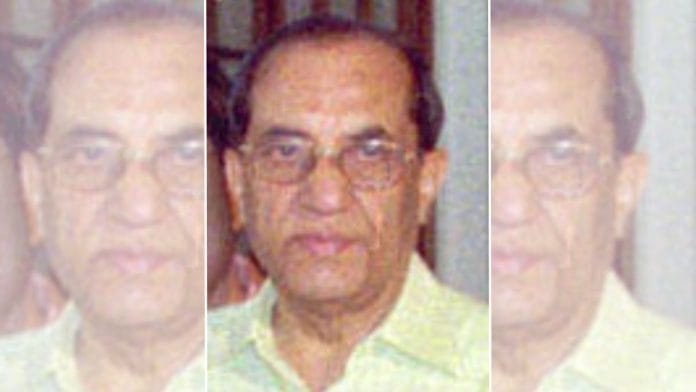Vijay Kumar Malhotra was one of the few stalwarts of the erstwhile Bharatiya Jana Sangh who witnessed the political journey of the BJS and the BJP for over seven decades. Always dressed immaculately and a sportsman to the bone, Malhotra, a five-time MP and two-time MLA from Delhi, was always a cut above the rest in the party.
I first met him in Mumbai as the Office Secretary of the BJS when I was one of the youngest members rubbing shoulders with stalwarts like Hashu Advani, Ved Prakash Goyal, and Vasantrao Bhagwat.
Malhotra, with Kedar Nath Sahani and Sunder Singh Bhandari, would regularly visit BJS’ Mumbai office for organisational hand-holding. While Bhandari wore a simple dhoti and khadi kurta, Malhotra would always be dressed in a shirt and trousers or smart casuals.
As the editor of Organiser, I often met him at the Delhi BJP office. Though not a prolific writer in English, Malhotra would hand over transcripts of his speeches for publication in Organiser, which I did, dutifully.
Between 1967 and 1971, he was the Chief Executive Councilor of Delhi’s Metropolitan Council, equivalent to the post of chief minister.
It was the time when KR Malkani was the editor of Organiser (1948-1983), and had an assistant working as a pracharak of the RSS in Rajasthan. Malhotra and three of his political colleagues — Kedar Nath Sahani, Kanwar Lal Gupta and Madan Lal Khurana, who were instrumental in founding the BJS in Delhi — were looking for someone to assist them with the work in the Delhi Municipal Corporation (DMC).
Sahani, it seems, told the group sitting in the BJS office at Patel Nagar in Delhi about Malkani’s assistant who was “good in English and well-educated”. When the group asked Sahani to bring the assistant in, Sahani informed them that the individual was “sitting outside the office.” And this is how Malhotra met Lal Krishna Advani, Malkani’s assistant. Impressed by Advani, Malhotra made him the leader of the BJS and also nominated him as the chairman of the Delhi Metropolitan Council in 1967, a position in which Advani served for a year.
An instrumental role
Even though the BJP suffered a serious setback in the 1984 Lok Sabha elections — which were held after the assassination of Indira Gandhi — winning just two seats, Malhotra along with Khurana and Sahani were instrumental in keeping the party afloat in New Delhi for more than four decades, from 1960 to 2000. During my brief stint as in-charge of the BJP’s Parliamentary Party Office, I had several occasions to interact with Malhotra. Issues that appeared serious would be just a minor incident for him. Often, he would speak to opposition leaders and ruling party members and sort out the issue before it escalated.
Unlike his colleagues from the time of the BJS, several of whom became governors and held other constitutional posts, Malhotra chose to lead a quiet and simple retired life after the massive 2014 victory of the BJP. His death marks the end of an era which went far beyond the Vajpayee-Advani era.
Seshadri Chari is the former editor of ‘Organiser’. He tweets @seshadrichari. Views are personal.
(Edited by Aamaan Alam Khan)






